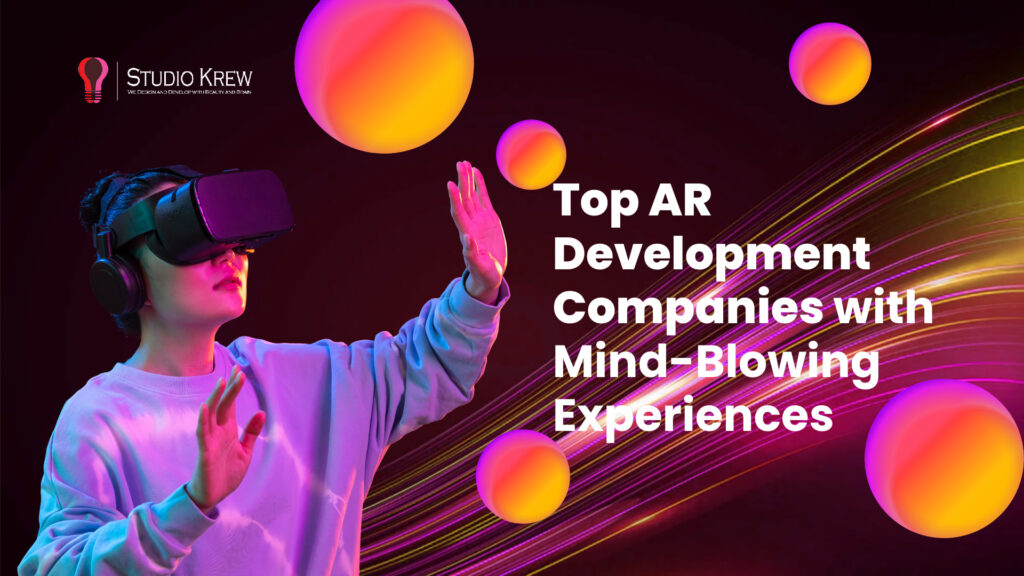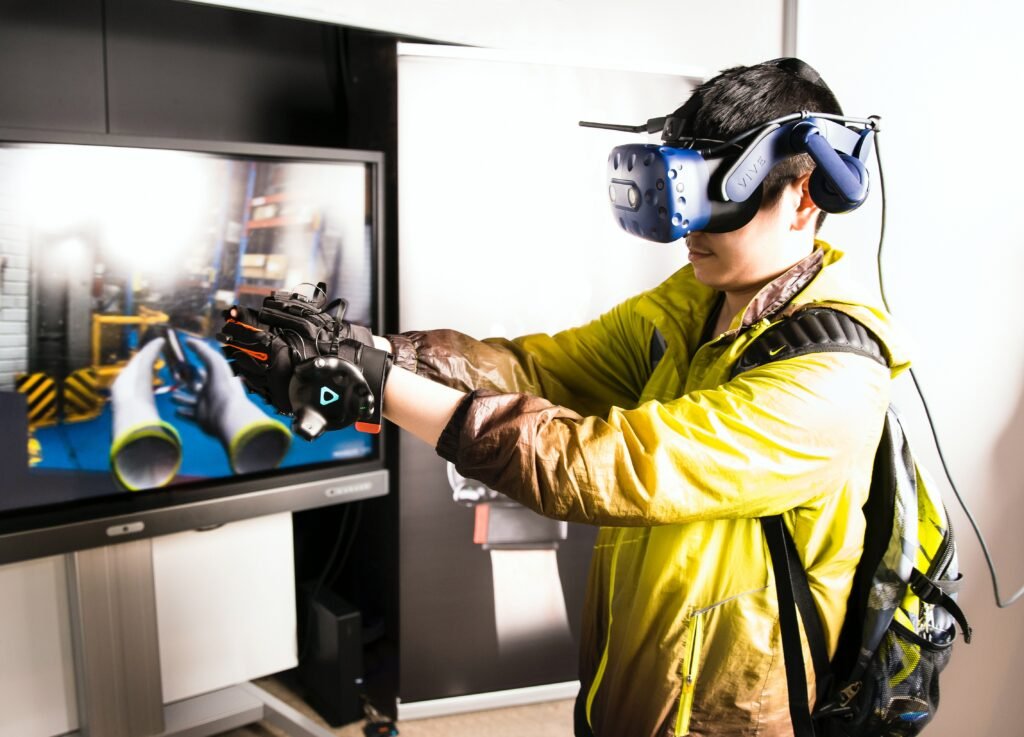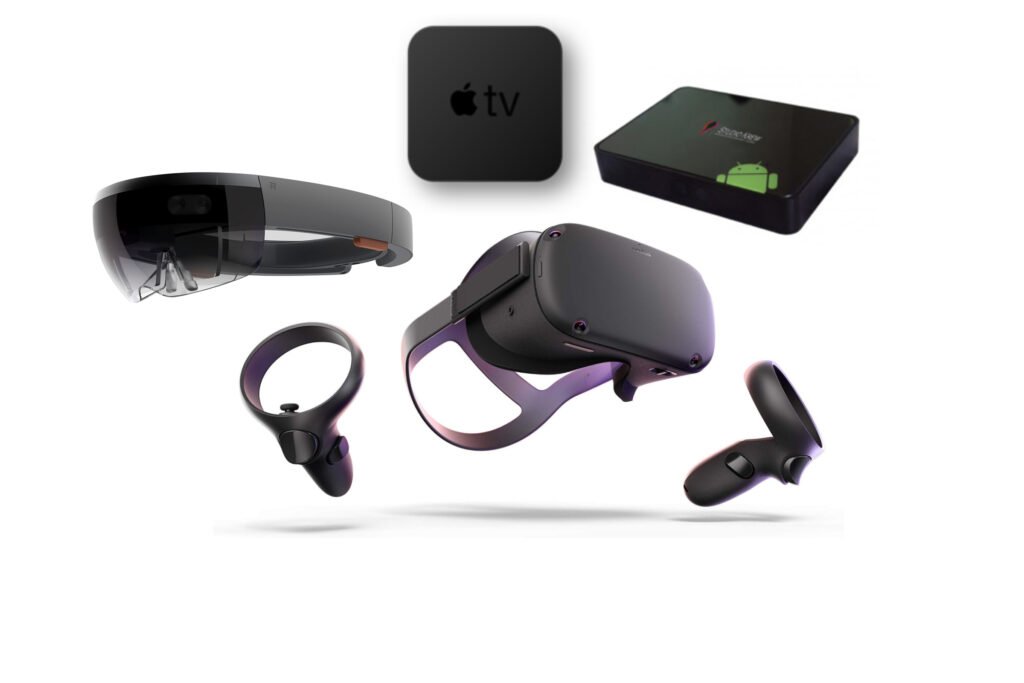We’ve certainly come a long way from the traditional days of chasing school buses, enjoying canteen meals with friends, and learning in physical classrooms. The COVID-19 pandemic has propelled us into a new era, where we find ourselves confined to screens, absorbing knowledge for hours on end.
As the pandemic loomed, the urgency of finding innovative ways of delivering education became apparent. The shift to virtual classrooms and the search for methods that not only enhance but also sustain learner engagement became a top priority. The rapid rise of gamified eLearning is a testament to this, and Educational Learning Game Development Companies are playing a significant role in it.
Even as the pandemic recedes, online education remains a steadfast presence. The continuous evolution of educational technology has led us to the doorstep of Augmented Reality (AR) and Virtual Reality (VR), the latest technologies that have already significantly impacted the entertainment sector. You may check the link here for more Entertainment App Development services information.
The potential of AR and VR App Development in education is a beacon of hope in these challenging times. Thanks to the immersive experiences these technologies offer, they are helping to craft highly engaging, effective, and innovative learning platforms across every domain. The future of eLearning looks promising with the integration of AR and VR.
Although the revolutionary shift in education is still in its early stages, AR and VR in eLearning are making strides to become more accessible and affordable. These technologies are not just for the elite but for everyone who is interested in enhancing their learning experience. The questions surrounding AR and VR App Development in the edTech sector are exciting, and we’re here to answer them and address any concerns you may have.
We’d be answering most of them and satiate your curious nerves here.
So, let’s get started, then!
AR vs. VR, Well, What’s The Difference?
Despite their growing popularity, confusion still needs to be addressed regarding the terms AR and VR. Many people use them interchangeably, unaware of their distinct characteristics and applications.
AR (Augmented Reality) overlays digital information onto the real world, enhancing our perception of reality. On the other hand, VR (Virtual Reality) immerses users in a fully simulated environment, disconnecting them from the physical world.
Understanding these differences is crucial for harnessing each technology’s unique capabilities and unlocking its full potential in education.
In conclusion, AR and VR are driving a paradigm shift in the education sector, offering exciting possibilities for the future of learning. As AR VR educational and training game development companies innovate, we expect to see even more transformative changes in how we educate and learn. Let us explore these fascinating experiences now!
How Are AR and VR Games Used In Education?
Using opaque headsets, VR offers immersive experiences that mimic the real world. On the other hand, AR simply extends digital elements over real-life views to deliver augmented experiences. Unlike VR, which blocks the live view, AR allows users to see their real surroundings.
Regardless of where they are used, all the applications of AR and VR in education are targeted to make learning an immersive experience so users absorb more, engage more, and holistically learn a concept. This is done by using enhanced eLearning simulations that allow learners to grasp every facet of the subject deeply. The advancements are set to break new frontiers with AR/ VR Metaverse games in education and training.

Enhanced Simulation Immersion
When kids interact with digital content, distractions can quickly derail their focus and engagement. However, immersive simulation experiences using AR/VR in education are helping learners — especially young students — stay mentally engaged while exploring virtual tasks.
Through advanced simulation games and interactive storytelling, learners can now access these environments not only via mobile devices but also through visual headsets, spatial audio systems, and increasingly, tactile-enabled devices. These realistic virtual experiences support deeper understanding, memory retention, and emotional connection with educational content.
As a leading kids game development company, StudioKrew specializes in crafting AR and VR educational games tailored for younger audiences. Our kids game development services focus on age-appropriate mechanics, engaging narratives, and immersive learning journeys that make education more impactful and fun.
From interactive 3D simulations for early learning to gamified STEM concepts for K-12, our solutions are designed to transform passive screen time into a purposeful, guided adventure — nurturing curiosity and cognitive growth.
One-on-One Training In Virtual Environments
Countless video conferencing tools are out there. They claim to offer more blended training and learning experiences. But, you can’t ignore the disconnect or a sense of barrier that lurks. VR and AR technologies are all set to take corporate learning to a new level. Virtual training rooms and classrooms will allow instructors and learners to interact in real-time or real-case scenarios. It might be in the form of an avatar or realistic representations of a person himself as the tech advances or a real virtual challenge, giving first-level experience and reducing the event of mishandling or accidents while offering in-depth knowledge. The best example can be a lab experiment or an AR-based microscope, which will provide first-hand experience of the experiments or activity.

Deep & Insightful Analytics
AR and VR technologies will use deep and detailed analytics to track user behaviour. From determining the alertness level to evaluating learners’ emotional state, the solutions might be able to do a lot. Big data from AR/ VR will help trainers craft more personalized and engaging courses to improve engagement. Not only would insightful analytics satisfy learners’ expectations, but it will also help you drive better virtual training ROI for the company.
To make the most of your big data, professional Data Analytics & Big Data services come in handy. As experts will be handling your data, you can focus on your business strategies to scale it up further.
Qualitative eLearning assessments
As learners engage with eLearning simulations and AR/ VR edTech solutions, the software tracks and records their performance to evaluate their weaknesses and strengths. Users would be able to learn from mistakes effectively through advanced educational platforms, qualitative assessments, and instant visual feedback. Not only do gamified assessment solutions make the process more entertaining, but they also make close-to-perfect evaluations of the skills and knowledge of a learner.
Recently, StudioKrew worked on an assessment game for an international Pharmaceutical Company to evaluate a candidate at the time of application submission. The solution involved a real-world challenge played as a game while the backend performed evaluation based on various essential psychometric parameters. Then, the hiring team just had to select the assessment scales and get a list of base-level shortlisted candidates.
Deeply Engaging Gamification
Noticing the impact of AR/VR technologies in games, it can be said outright, “AR/ VR are the future of gamification.” Virtual rewards exist in modern gamified solutions, but learners can’t hold them. However, AR/ VR is striving to change the scenario by making the incentives real so learners are motivated to accomplish their best. Leaderboards, tangible badges, and other advanced gamification elements will take gamified education to the next level. For more information on Gamified Solutions, you can reach out to the Best Application Gamification Company – StudioKrew.

Top Factors To Keep In Mind While Planning and Developing AR/VR-Based eLearning Games
Augmented and virtual reality in educational games break the fourth wall that prevents us from having life-like experiences with the subject matter. However, to keep the experience as impactful as it should be, certain factors must be considered while planning AR/ VR eLearning games.
- Platform End Target & Story: Identify your end target and know them inside out, e.g., about their economic strata, jobs, interests, etc. To stay relevant, a company building an app must understand consumers’ needs and goals. Furthermore, to maximize an app’s experience, you need to consider the storyline. An application can be responsive and user-friendly with rich animations, an intuitive interface, interaction options, responsiveness, etc.
- Test Cases & Real Model: Considering test cases & accurate models simultaneously helps determine whether the application performs as expected and complies with guidelines, end target needs, and standards. Furthermore, it will also manifest defects or errors that might be hiding from sight. To ensure the quality and smooth functioning of the application testing is a step that can’t be ignored.
- Robust Platform Architecture: A clear and robust application architecture is of immense importance, and it determines how every unit of the app is related and interacts with each other. A seamless architecture is crucial for a seamless transition, scalability, and a user-friendly experience. While designing a solid app architecture, it is essential to consider some aspects like device size, connectivity or bandwidth status, proper UI, real-time updates and push notifications.
- End Target Platforms & Hardware: You need to consider the prominent device size and hardware the end target utilizes. Furthermore, understanding the availability, bandwidth, and connectivity are other elements that require attention. The data access system must be created to withstand dwindling network conditions.

- Feasibility of Accessibility: Make sure your end target can easily access the platform and its content. It must be compatible with their screen size, storage, bandwidth, and device specifications. Moreover, compatibility ensures the user does not face issues while accessing the platform and its content in the virtual classroom. If the platform is incompatible, it will be too problematic, which will only avert users from using it.
- UX/UI: AR/VR technologies in education aim to make learning immersive and exciting. Thus, it is crucial to plan a world that students find attractive and functional so that they begin to absorb the concepts effectively and efficiently. An engrossing VR environment will encourage learners to return to the virtual world more often and for longer durations. Once the environment is in place, it’s time to do the rest of the design. Rich graphics, text, sound, video, and animation should be incorporated to make the virtual classroom more engaging and interactive. Furthermore, features allowing students to engage with other learners globally always pay off.
- Evaluation Parameters For Assessment Platform: While striving to make the application reliable, non-discriminatory, and predictive, it is essential to ensure the app doesn’t include too many evaluation parameters. The best practice suggests including a limited number of assessment criteria per assessment cycle. Too many of them could lead to the application becoming less user-friendly, poorly interactive, and unfeasible.
To learn more about what it takes to build marvellous AR/VR eLearning applications, contact the business team of a top AR/VR eLearning Game Development company, like KrewGames.
A Quick Wrap-Up
So, you saw how AR and VR technologies can make your LMS or eLearning project more functional, engaging, and effective. We discussed how AR and VR could be used in education, their limitations, etc.
While the solutions ensure immersive learning experiences and better understanding, they come with specific dampers, which we discussed above.
Nonetheless, ongoing advancements in the field are continuously targeted at making things better, more effective, and more accessible. Companies like StudioKrew, a leading game development company based in UK, UAE and the USA, have already taken big steps to craft fun, productive solutions like eLearning games and LMS systems in the fields of education, healthcare, finance, gaming, and so on.
Do you have any app or game ideas? Come to us; we will help you turn it into a remarkable reality. If you want to outsource game development tasks, we offer the best professionals who are passionate about taking up challenging and innovative projects.





